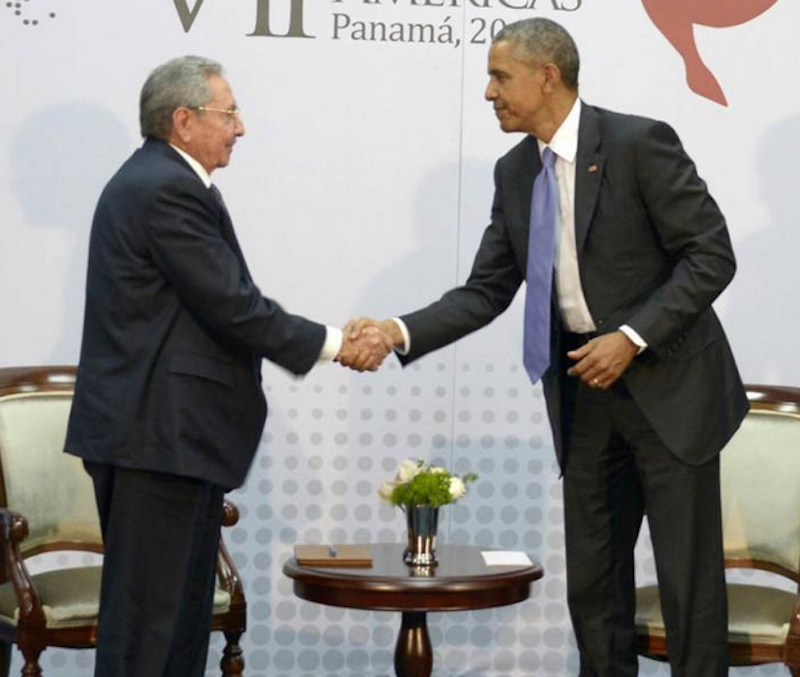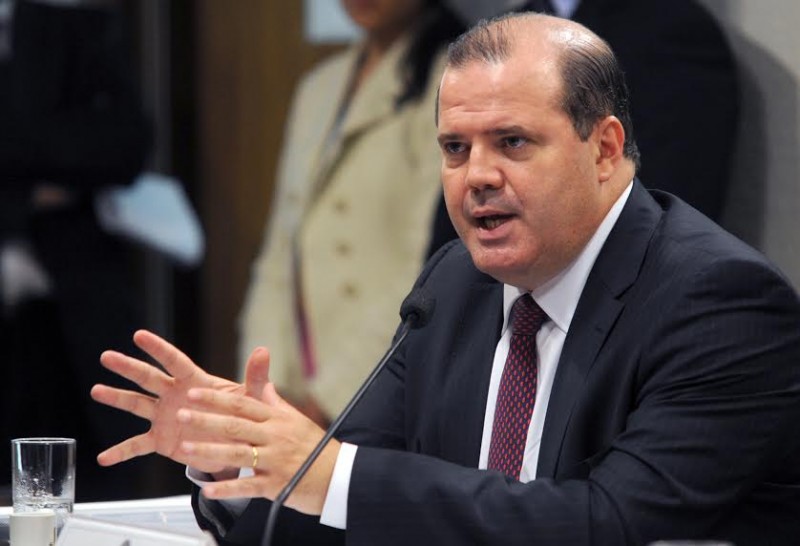
Latin America: Week in Review, Mexico
Mexican Drug War Intensifies With 27 Dead After Shootout
September 3, 2010 By Staff

Mexican President Felipe Calderón.
Today in Latin America
Top Story — Mexico’s bloody drug war continued as the Mexican army claims to have killed 27 suspected drug cartel members in a shootout in the state of Tamaulipas.
The shootout took place after a military patrol approached a suspected training camp that had been spotted during an aerial search.
Authorities rescued three people believed to be kidnap victims after the shootout and recovered 25 rifles, four grenades, 4,200 rounds of ammunition and 23 vehicles.
The Tamaulipas state has seen a surge of violence recently after the Zetas began a gruesome campaign on their old employer, the Gulf cartel. Last month Mexican marines found the bodies of 72 Central and South American migrants believed to have been killed after refusing to transport drugs for the Zetas.
Mexican President Felipe Calderón, who earlier this week praised the efforts of the country’s authorities in combatting the drug cartels, said Thursday that drug violence is “the central threat” to the country.
“As we all know, we face unscrupulous criminals with enormous economic capacity and great firepower,” Calderón said, according to the Washington Post. “I am fully aware that in the past year the problem of violence has risen.”
Just Published at the Latin America News Dispatch
- Tens of thousands of unaccompanied children immigrants are presenting perplexing problems for U.S. policymakers. Alison Bowen explains in her latest post at Beyond Borders.
- After losing in a second-round election to Alán García in 2006, controversial Peruvian nationalist Ollanta Humala is running for the presidency again. Get to know him in this interview with Paul Alonso.
Headlines from the Western Hemisphere
North America
- A poll released Wednesday found that an overwhelming majority of Arizona voters support the types of provisions that are at the heart of a national debate involving the state’s immigration law.
- An offshore oil rig exploded in flames in the Gulf of Mexico Thursday, just west of the BP Deepwater Horizon oil spill, according to the U.S. Coast Guard.
Caribbean
- Six Cuban migrants held hostage by people smugglers were found at a resort on Mexico’s Caribbean coast.
- In an apparent first, a Cuban court is considering a lawsuit that could force the government to officially recognize a group of dissident lawyers.
Central America
- Hundreds of Guatemalan migrant workers and their allies marched through Guatemala City to the Canadian embassy on Wednesday, to protest the alleged abuses of migrants under Canada’s Temporary Foreign Workers program.
- Honduran Foreign Minister Mario Canahuati has called Ecuador’s President Rafael Correa “irresponsible” for revealing that a second person survived a massacre in Mexico last month. Canahuati said Correa had risked the life of the survivor, a Honduran, by revealing the information.
- Costa Rica’s central bank said it will buy as much as $50 million a month in the foreign-exchange market to bolster its foreign reserves.
Andes
- Colombian authorities say five police officers were killed and four wounded by a roadside bomb while on patrol in an area where leftist rebels are active.
- An 11-year-old girl injured when a jetliner carrying 131 people crashed on Colombia’s San Andres Island last month has died, raising the accident’s death toll to two.
- Colombian and South Korean officials will meet September 6-10 in Washington DC to thresh out a free trade agreement between the two Pacific-rim nations, Colombia’s trade minister has told reporters.
- Venezuela never violated the rights of a farmer who died after lengthy hunger strikes, the country’s vice-president said Thursday.
- Venezuela plans to pay Casino Guichard-Perrachon et Cie SA “about $600 million” for a majority stake in the French food retailer’s local unit, Cativen, President Hugo Chávez said Thursday.
- The Amazon, the world’s biggest river, is at its lowest level in over 40 years near its source in northeastern Peru, causing havoc in a region where it is used as the only form of travel, authorities said.
- Anglo-Swiss miner Xstrata signed a deal with Peru on Thursday giving it rights to start building its Las Bambas copper mine, a $4.2 billion project President Alan Garcia called “the contract of the century.”
- The United Nations food aid agency has stepped in to help in southern Bolivia’s El Chaco region, where a long dry spell has decimated maize harvests, threatening an entire culture of indigenous corn growers with destitution.
Southern Cone
- Argentine President Cristina Fernández de Kirchner called on other Mercosur nations to work towards the goal of making the region one of the world’s main agricultural sectors.
- Brazilian police detained a teenage boy Wednesday night while he was shooting arrows over the walls of a prison in southern Brazil to provide inmates with contraband cell phones.
- The wife of a Chilean miner trapped underground at the San Jose mine ran into his mistress during a vigil for the 33 trapped men.
- The Uruguayan survivors of a 1972 plane crash in the Andes will travel to Chile to support the trapped miners and repay the Chilean government for rescuing them nearly four decades ago.
Image:
Subscribe to Today in Latin America by Email
< Previous Article

September 2, 2010 > Staff
Mexican Drug Trafficker “La Barbie” Linked To Arrests In Colombia
Next Article >





2 Comments
$113 billion is spent on marijuana every year in the U.S., and because of the federal prohibition *every* dollar of it goes straight into the hands of criminals. Far from preventing people from using marijuana, the prohibition instead creates zero legal supply amid massive and unrelenting demand.
According to the ONDCP, at least sixty percent of Mexican drug cartel money comes from selling marijuana in the U.S., they protect this revenue by brutally torturing, murdering and dismembering countless innocent people.
If we can STOP people using marijuana then we need to do so NOW, but if we can’t then we need to legalize the production and sale of marijuana to adults with after-tax prices set too low for the cartels to match. One way or the other, we have to force the cartels out of the marijuana market and eliminate their highly lucrative marijuana incomes – no business can withstand the loss of sixty percent of its revenue!
To date, the cartels have amassed more than 100,000 “foot soldiers” and operate in 230 U.S. cities, and Arizona police are now conceding that parts of their state are under cartel control. The longer the cartels are allowed to exploit the prohibition the more powerful they’re going to get and the more our own personal security will be put in jeopardy.
[…] south of Brownsville, Texas; the assassination of Hidalgo mayor Marco Antonio Leal Garcia; and a shootout between the Mexican army and suspected drug cartel members in Tamaulipas that left 27 dead). […]
Comments are closed.